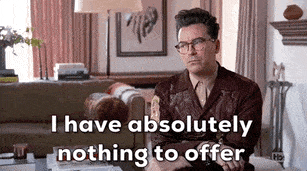- SMBrand Clinic
- Posts
- How Self-Deprecation Can Sink Your Brand
How Self-Deprecation Can Sink Your Brand
(Or You)
Once upon a business headline, CEO of the UK's largest jewelry chain, described his own products as "crap." It was meant to be a joke—a cheeky nod to the accessibility of his offerings. But his moment of self-deprecation torpedoed his entire empire, costing Ratner his company, his reputation, and millions in revenue. It's a cautionary tale about the surprising dangers of self-deprecating humor in advertising. And let's face it: we're all a bit guilty of Ratner's impulse to poke fun at ourselves. But why?
At one level, it’s a tension release. It can be funny and disarming—a classic "don't worry, I'm just like you" move. We downplay our success to ease the room's temperature when we’ve just closed a big deal, or, like Ratner, we might try to balance a public image that feels intimidating with humor. Sometimes, it’s a misguided attempt to make others feel comfortable when we sense we’ve outperformed them. But when self-deprecation is taken at face value, it often backfires. The truth is, whether you're branding a company or branding yourself, people can start to see you exactly as you joked about—not quite so competent, maybe a bit careless, maybe even, dare I say, “crap.”

We love self-deprecation because it feels safer than risking arrogance. Being funny at our own expense is less threatening, more digestible. And when we’re trying to manage how people perceive our success—especially if we sense we’ve outperformed them—it’s easy to slip into a joke that takes us down a peg. In a world where people obsess over "relatability," it’s a way of saying, “Hey, don’t worry, I’m not that special.” But when does this habit go too far?
Enter Alison Fragale, author of Likable Badass, who argues that before you throw yourself under the bus, you need to ask: will this comment help me learn or help me teach? If the answer is no, then you’re probably just taking an unnecessary jab at yourself. And here’s the hard truth: people don’t always see the intent behind our words. They hear “I’m not that smart” and, boom, they’ve filed it under “not that smart.” As Maya Angelou wrote, “When someone shows you who they are, believe them the first time.”
Consider this: when you self-deprecate, you’re banking on people “getting” that you’re joking. The problem is, the world is full of people who take things at face value. So if you’re trying to build authority, credibility, or a brand people trust, every joke about your own “incompetence” or “stupidity” is another chisel mark. Ask yourself this: would you trust an airline pilot who joked about his flying skills? Would you feel safe on a plane if the captain kicked off the safety briefing with, “Listen, I’m pretty good at this, but don’t hold me to it”? Or the Anesthesiologist who rocked up to my spine mid labor and cracked; “You don’t mind if I practice on you, do you?”
In the end, maybe Ratner was funny. Maybe his “crap” comment killed at the event. But he’s also the reason we talk about the limits of self-deprecating humor in advertising. People want to trust that the product, or the leader behind it, actually cares. Ratner lost that trust with one careless line, and his company took the hit. So next time you’re tempted to knock yourself down a peg, ask if it’s worth it. Humor’s a powerful tool, but when the joke is on you, make sure it’s one that builds your brand—rather than buries it.